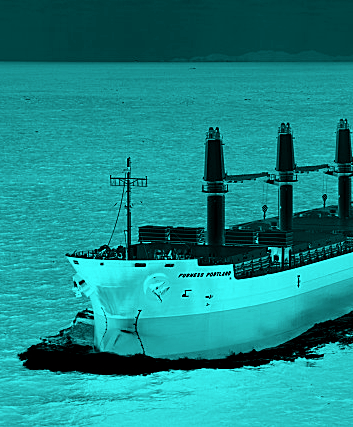Ship rule drives accidental change
 A new study suggests shipping emissions regulation may have led to ocean warming.
A new study suggests shipping emissions regulation may have led to ocean warming.
In 2020, a regulation aimed at reducing air pollution from shipping emissions may have inadvertently led to the warming of several ocean areas, according to international research.
The International Maritime Organization (IMO) introduced the IMO 2020 regulation, which significantly reduced the maximum sulphur content in shipping fuel from 3.5 per cent to 0.5 per cent.
This initiative led to an 80 per cent reduction in sulphur dioxide emissions from ships.
Sulphur dioxide emissions, while contributing to air pollution, also react with water vapour in the atmosphere to form aerosols.
These aerosols have a cooling effect on the Earth's surface by reflecting sunlight back into space and influencing cloud formation.
This process, known as marine cloud brightening, increases cloud coverage and results in brighter clouds that reflect more sunlight.
The reduction in these cooling aerosols has potentially caused a rise in ocean temperatures in regions with heavy shipping traffic.
Researchers conducted a modelling study published in Communications Earth & Environment.
They used satellite observations and models to estimate changes in aerosol levels following the implementation of IMO 2020.
They observed substantial reductions in aerosol levels, particularly in the North Atlantic, Caribbean Sea, and South China Sea - areas with dense shipping traffic.
The study also evaluated the impact of these changes on Earth's energy budget.
The researchers estimated that the reduction in aerosols since 2020 is equivalent to 80 per cent of the observed increase in planetary heat uptake.
This increase in heat retention is a significant contributor to the warming observed in these regions.
The findings highlight an unintended consequence of the regulation, which has created a situation akin to a geoengineering termination shock.
Geoengineering termination shock refers to the rapid and substantial change in climate conditions following the abrupt cessation of a geoengineering intervention.
In this case, the intervention was the unintentional cloud seeding by ships burning high-sulphur fuel.
The study suggests that marine cloud brightening could be a viable strategy for temporarily cooling the climate.
However, the potential effects on regional weather patterns and the inherent challenges of managing such interventions pose significant risks.
The researchers caution that while deliberate geoengineering might offer a temporary cooling solution, the complexities and potential side effects must be carefully considered.
The IMO 2020 regulation's primary goal was to improve air quality by reducing sulphur emissions, which are harmful to human health and the environment.
The experts say that while the regulation has achieved its intended purpose, the unintended climatic impacts show the need for comprehensive assessments of environmental policies.








 Print
Print